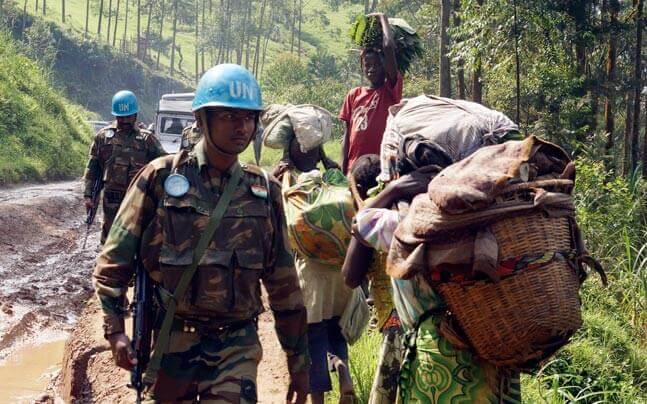The United Nations (UN)’s Office of Internal Oversight Services (OIOS) has begun an inquiry into allegations by an apparent whistleblower in Uganda who has accused a UN Population Fund (UNFPA) staffer of exploitation and sexual abuse of a “female victim”. The allegations have opened up a larger investigation into a more general trend of serious misconduct by other UN workers stationed in Karamoja, one of the country’s most poverty-stricken regions.
The case alleges that UN staff demanded sex from local women at the World Food Programme (WFP) building in Moroto, apparently in exchange for food. Many unnamed UN representatives stationed in Moroto told The New Humanitarian that staffers often hired sex workers. The WFP compound offers sleeping quarters to the staff of other UN agencies as well, and in an area where around 500,000 people suffer acute food shortages, such offers are often not turned down.
Amanda Lawrence-Brown, the regional spokesperson for the WFP, said that the UN was investigating the allegations made against its staff residing in the Moroto WFP compound. “There is no place for any form of sexual harassment, exploitation, or abuse at the World Food Programme, including by non-WFP staff residing at compounds managed by WFP in the field,” she said. While Lawrence-Brown was unable to divulge the exact number of UN workers living at the base, she said that the WFP was looking into potential security protocol breaches as well, since guards at the facility are ideally supposed to screen all visitors.
The WFP center in Karamoja was also implicated in a scandal last year when around 300 people fell sick and four people died from eating a fortified cereal. Further, an email sent to UN leaders by the agency’s resident coordinator in Uganda, Rosa Malango, with the subject line Uganda the next Haiti for the UN, created a stir among staff members who felt that Malango divulged sensitive and confidential information that should “never have been circulated to internal email groups”. The reference to Haiti was an apparent dig at the misconduct of Oxfam workers in 2010, where the British organization was blamed for covering sexual abuse claims of earthquake victims against staffers dealing with earthquake victims.
This is hardly the first time that the UN is dealing with sexual misconduct allegations against its workers. The Human Rights Watch notes that peacekeepers have a track record of abuse, with Haiti and Uganda just being a few of many countries where workers have either raped or sexually exploited women and girls in exchange for security or food. UN forces in the Central African Republic, the Democratic Republic of Congo, and African Union troops in Somalia have all been pulled up for their actions.
As a redressal mechanism, however, the UN in 2015 created a trust fund and other psychological, employment, and service programs for victims of abuse by peacekeepers, including education and food programs for children fathered by soldiers and workers. In the same year, it also began publishing the nationalities of the workers who were named in these cases, in an attempt to deter such depraved acts in the future. In 2017, the international organization established a mechanism for compulsorily sending victim advocates as part of peacekeeping missions. Logs and reports, along with updates on cases, are readily available for public access.

